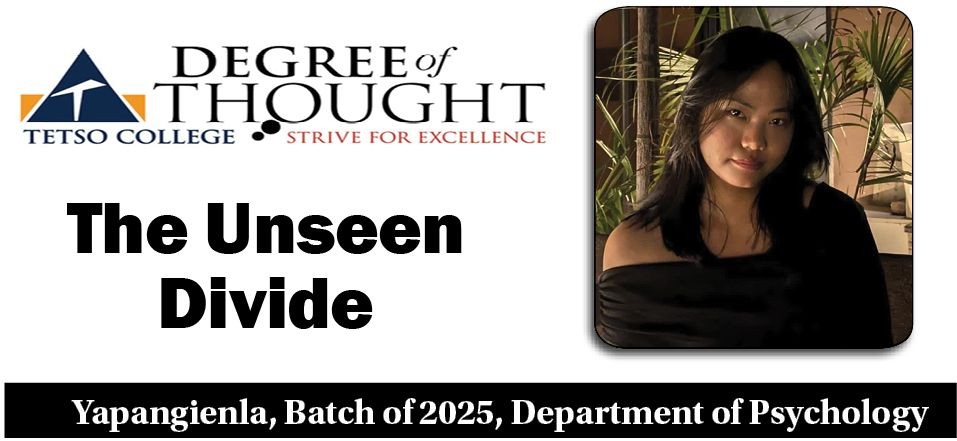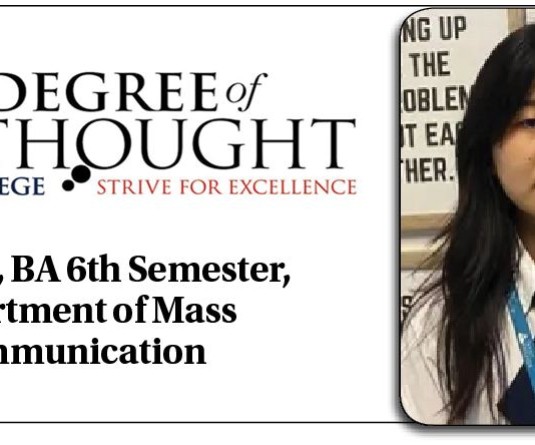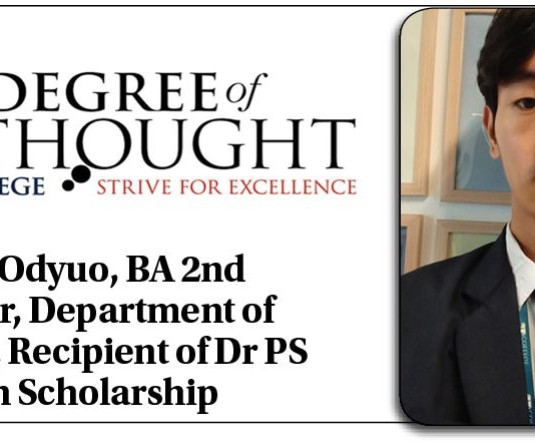
An educated young woman once told me, “We Nagas don’t have mental health issues; that’s something only Hindus face. For us, strong faith is enough—I don’t see the need for a psychologist.” She said this when I shared my desire to become a psychologist. Her words shocked me, but they also made me reflect on how much faith alone can address mental health struggles. That moment revealed the deep divide in our community between spiritual healing and scientific therapy, where mental health is still poorly understood. It raises a larger question: how do we balance spiritual beliefs with the complexities of mental health? While faith may be everything for some, others need more than prayer. Both religious and psychological counselling have their strengths and limitations—but which truly provides the support needed to heal both mind and soul?
Exploring Religious vs. Psychological Counselling
As a psychology student, I’ve found myself constantly grappling with the clash between deeply held spiritual beliefs and the science-based approaches to mental health. Growing up, I was taught to seek comfort in faith during tough times. However, as I learn more about psychology, I’m left wondering: can faith alone truly heal the mind? This question lies at the heart of a larger conversation about the differences between religious and psychological counselling, and which one offers the support people really need.
Religious Counselling: “Religious counselling integrates spiritual beliefs and practices, using guidance from religious leaders to address mental health issues. It often involves prayer, meditation, and faith in a higher power as a source of healing. Religious counselling has been part of my life since Sunday school and continued into adulthood. Yet, there was a time I felt lost and uncertain. A conversation with a counsellor then became a turning point—the comfort and guidance I received, rooted in spiritual encouragement, gave me peace I hadn’t felt in years. While it didn’t solve everything instantly, the emotional and spiritual support helped me regain perspective and strengthen my faith. That experience was pivotal in lifting me through a difficult time.
However, I also realised spiritual counselling isn’t always enough. Some challenges, especially mental health issues like anxiety or chronic stress, demand structured, evidence-based approaches beyond prayer or spiritual advice. This is a common criticism I’ve encountered, too. While prayer is powerful and essential, addressing underlying psychological struggles may be necessary before one can fully benefit from spiritual practices.
Pargament (2007) (in Spiritually Integrated Psychotherapy: Understanding and Addressing the Sacred) notes that while spiritual practices are crucial for emotional well-being, they do not always address deep psychological struggles like depression or trauma. Sometimes, we need to clear the mental fog before we can truly experience the healing power of prayer.
Criticism of Religious Counselling: A common criticism I’ve encountered is the suggestion to simply “pray more” or “go to the prayer centre” when facing mental health struggles. While faith can be deeply comforting, I often wonder—how realistic is this for someone battling depression, who can barely get out of bed, let alone attend sermons or engage in spiritual practices? The belief that prayer alone can “fix” such struggles overlooks the reality that conditions like depression, anxiety, or chronic stress often demand more than spiritual guidance. Prayer is powerful, but lasting healing may also require structured, evidence-based approaches that address underlying psychological causes.
Rosenberg & Davidson (2001) (in The Role of Religion and Spirituality in Coping with Mental Illness) suggest that while prayer and religious engagement are important, they may not be sufficient for individuals dealing with severe mental health issues like clinical depression. Mental health struggles often require more than just spiritual practices; they need a more structured approach that helps people deal with the underlying psychological causes.
Psychological Counselling: Psychological counselling involves trained professionals using evidence-based methods like Cognitive Behavioural Therapy (CBT) and psychodynamic therapy to help individuals manage and overcome mental health challenges. Hofmann et al. (2012)(in “The Efficacy of Cognitive Behavioural Therapy: A Review of Meta-Analyses”) emphasise that CBT is highly effective for treating conditions such as depression and anxiety by helping individuals reframe negative thought patterns.
Psychological counselling follows professional ethics and focuses on understanding thoughts, behaviours, and emotions to improve well-being. It addresses the root causes of mental health issues and provides practical coping tools such as relaxation techniques, problem-solving, and emotion management. The key difference lies in approach: religious counsellors often offer faith-based support with deep emotional investment, while psychological counsellors combine compassion with a structured, evidence-based method to help clients navigate their struggles.
Criticism of Psychological Counselling: One criticism I’ve heard from some people, including a friend who sought counselling, is the feeling that their therapist lacked empathy or emotional warmth. While it’s understandable to want a counsellor who’s compassionate and understanding, it’s also important to recognise that therapists work within certain professional boundaries. They may not always be emotionally invested in the way religious counsellors are. For some individuals, this can feel like a disconnect, especially if they are looking for someone who feels more like a friend or mentor.
However, the key here is that finding the right therapist is crucial, as not every approach fits everyone. Some therapists are more analytical, others more empathetic, and it’s about matching their style with your needs. If a counsellor doesn’t feel right, it’s better to seek another rather than give up on counselling. While therapeutic boundaries may feel restrictive at first, they create a safe, structured space for healing.
Mental health is complex and personal, and healing often requires blending the spiritual with the scientific—a balance of methods rather than a single solution.
Degree of Thought is a weekly community column initiated by Tetso College in partnership with The Morung Express. Degree of Thought will delve into the social, cultural, political and educational issues around us. The views expressed here do not reflect the opinion of the institution. Tetso College is a NAAC Accredited UGC recognised Commerce and Arts College. The editorial team includes Chubamenla, Asst. Professor Dept. of English and Rinsit Sareo, Asst. Manager, IT, Media & Communications. For feedback or comments please email: dot@tetsocollege.org






